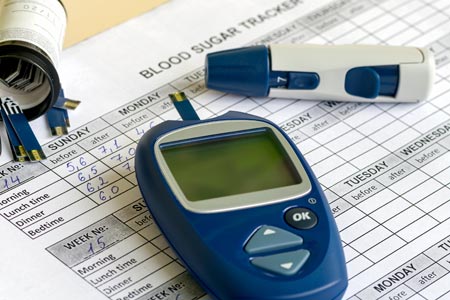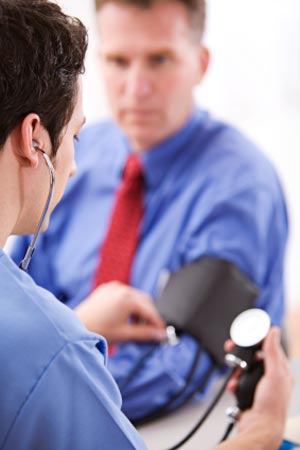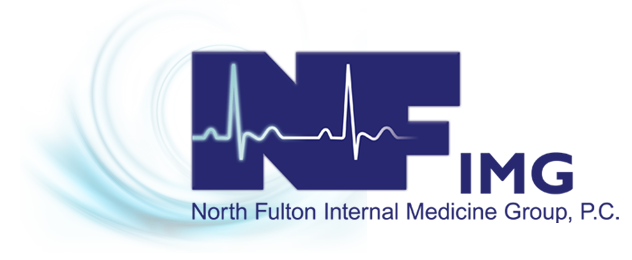Chronic Condition Management
Diabetes and Diabetic Nutrition and Education
What is diabetes?

Diabetes is a disease in which your blood glucose, or blood sugar, levels are too high. Glucose comes from the foods you eat. Insulin is a hormone that helps the glucose get into your cells to give them energy. With type 1 diabetes, your body does not make insulin. With type 2 diabetes, the more common type, your body does not make or use insulin well. Without enough insulin, the glucose stays in your blood. You can also have prediabetes. This means that your blood sugar is higher than normal but not high enough to be called diabetes. Having prediabetes puts you at a higher risk of getting type 2 diabetes.
What problems does diabetes cause?
Over time, having too much glucose in your blood can cause serious problems. It can damage your eyes, kidneys, and nerves. Diabetes can also cause heart disease, stroke and even the need to remove a limb. Pregnant women can also get diabetes, called gestational diabetes.
Diagnosis & Treatment
Blood tests can show if you have diabetes. One type of test, the A1C, can also check on how you are managing your diabetes. Exercise, weight control and sticking to your meal plan can help control your diabetes. You should also monitor your blood glucose level and take medicine if prescribed.
Hypertension or High Blood Pressure

What is blood pressure?
Blood pressure is the force of your blood pushing against the walls of your arteries. Each time your heart beats, it pumps blood into the arteries. Your blood pressure is highest when your heart beats, pumping the blood. This is called systolic pressure. When your heart is at rest, between beats, your blood pressure falls. This is called diastolic pressure.
Your blood pressure reading uses these two numbers. Usually the systolic number comes before or above the diastolic number. For example, 120/80 means a systolic of 120 and a diastolic of 80.
How is high blood pressure diagnosed?
High blood pressure usually has no symptoms. So the only way to find out if you have it is to get regular blood pressure checks from your health care provider. Your provider will use a gauge, a stethoscope or electronic sensor, and a blood pressure cuff. He or she will take two or more readings at separate appointments before making a diagnosis.
Why do I need to worry about high blood pressure?
When your blood pressure stays high over time, it causes the heart to pump harder and work overtime, possibly leading to serious health problems such as heart attack, stroke, heart failure, and kidney failure.
What are the treatments for high blood pressure?
Treatments for high blood pressure include heart-healthy lifestyle changes and medicines.
You will work with your provider to come up with a treatment plan. It may include only the lifestyle changes. These changes, such as heart-healthy eating and exercise, can be very effective. But sometimes the changes do not control or lower your high blood pressure. Then you may need to take medicine. There are different types of blood pressure medicines. Some people need to take more than one type.
Chronic Obstructive Pulmonary Diseases (COPD)
What is COPD (chronic obstructive pulmonary disease)?
COPD (chronic obstructive pulmonary disease) is a group of lung diseases that make it hard to breathe and get worse over time.
Normally, the airways and air sacs in your lungs are elastic or stretchy. When you breathe in, the airways bring air to the air sacs. The air sacs fill up with air, like a small balloon. When you breathe out, the air sacs deflate, and the air goes out. If you have COPD, less air flows in and out of your airways because of one or more problems:
- The airways and air sacs in your lungs become less elastic
- The walls between many of the air sacs are destroyed
- The walls of the airways become thick and inflamed
- The airways make more mucus than usual and can become clogged
What are the types of COPD (chronic obstructive pulmonary disease)?
COPD includes two main types:
- Emphysema affects the air sacs in your lungs, as well as the walls between them. They become damaged and are less elastic.
- Chronic bronchitis, in which the lining of your airways is constantly irritated and inflamed. This causes the lining to swell and make mucus.
Most people with COPD have both emphysema and chronic bronchitis, but how severe each type is can be different from person to person.
How is COPD (chronic obstructive pulmonary disease) diagnosed?
Your health care provider may use many tools to make a diagnosis:
- A medical history, which includes asking about your symptoms
- A family history
- Various tests, such as lung function tests, a chest x-ray or CT scan, and blood tests
Your doctor will diagnose COPD based on your signs and symptoms, your medical and family histories, and test results.
What are the treatments for COPD (chronic obstructive pulmonary disease)?
There is no cure for COPD. However, treatments can help with symptoms, slow the progress of the disease, and improve your ability to stay active. There are also treatments to prevent or treat complications of the disease. Treatments include:
- Quitting smoking and avoiding secondhand smoke
- Physical activity can strengthen the muscles that help you breathe
- Medicines, such as bronchodilators, flu and pneumococcal pneumonia vaccines, antibiotics if you get a bacterial or viral lung infection
- Oxygen therapy can help you breathe better. You may need extra oxygen all the time or only at certain times
- Pulmonary rehabilitation, which is a program that helps improve the well-being of people who have chronic breathing problems
- Surgery, usually as a last resort for people who have severe symptoms that have not gotten better with medicines

